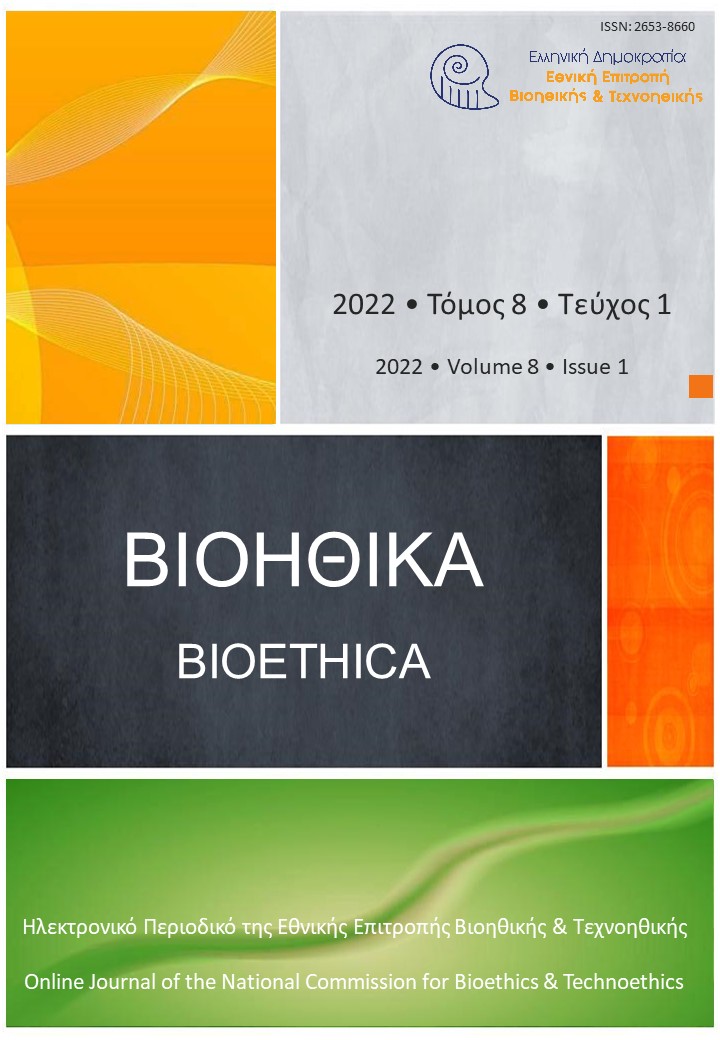Κοινωνικές και Ηθικές Πτυχές της Βιομετρίας
Résumé
Με την ραγδαία ανάπτυξη της τεχνολογίας, αναπτύσσεται παράλληλα και η επιστήμη της βιομετρίας. Η βιομετρία είναι η επιστήμη που σχετίζεται με την αναγνώριση και την ταυτοποίηση των ατόμων βάσει των φυσικών ή συμπεριφορικών χαρακτηριστικών τους. Με την σειρά τους, τα βιομετρικά συστήματα επικυρώνουν με ακρίβεια την γνησιότητα αυτών των χαρακτηριστικών των ατόμων με αποτέλεσμα να έχουν πληθώρα εφαρμογών. Ωστόσο, αναφορικά με την διαχείριση των βιομετρικών δεδομένων τίθενται ηθικά και κοινωνικά ζητήματα. Τέτοια παραδείγματα είναι η ιδιωτικότητα, η αυτονομία, η διαφάνεια και ο κοινωνικός αποκλεισμός ατόμων διαφορετικών ομάδων, για παράδειγμα του γηραιότερου ηλικιακού πληθυσμού. Ανάλογα ερωτήματα τίθενται και για το πώς χρησιμοποιούνται τα βιομετρικά δεδομένα των προσφύγων από διάφορους οργανισμούς και κυβερνήσεις οι οποίες έχουν αναβαθμίσει τα συστήματα ταυτοποίησης στα σύνορα, με σκοπό την υψηλότερη ασφάλεια. Συνεπώς, ενώ η επιστήμη της βιομετρίας έχει συντελέσει στην βελτίωση του βιοτικού επιπέδου και της ασφάλειας των ανθρώπων, δύνοντας λύσεις σε πολλά προβλήματα, παραλληλα έχει αποτελέσει και αντικείμενο
συζήτησης σχετικά με το αν παραβιάζει τα ανθρώπινα δικαιώματα.
Article Details
- Comment citer
-
Δεσποτίδης Κ. (2022). Κοινωνικές και Ηθικές Πτυχές της Βιομετρίας. Bioethica, 8(1), 6–21. https://doi.org/10.12681/bioeth.30532
- Rubrique
- Original Articles

Ce travail est disponible sous la licence Creative Commons Attribution 4.0 International .
Authors who publish with this journal agree to the following terms:
- Authors retain copyright and grant the journal right of first publication with the work simultaneously licensed under a Creative Commons Attribution CC BY 4.0 License, which allows for immediate free access to the work and permits any user to read, download, copy, distribute, print, search, or link to the full texts of articles, crawl them for indexing, pass them as data to software, or use them for any other lawful purpose. Appropriate credit must be given by citing the author(s) and the original publication in this journal.
- Authors are able to enter into separate, additional contractual arrangements for the non-exclusive distribution of the journal's published version of the work (e.g. post it to an institutional repository or publish it in a book), with an acknowledgement of its initial publication in this journal.
We encourage authors to deposit their articles, as well as data underlying the publications, in institutional and/or other appropriate subject repositories.
Bioethica permits and encourages authors to archive the final publication pdf in institutional (e.g. the repository of the National Hellenic Research Foundation) or other appropriate subject repositories (e.g. SSOAR repository for social sciences), in compliance with institutional and/or funder open access policies, after publication in the BIOETHICA. Authors must provide bibliographic details that credit publication in the journal, as well as related funding details (when applicable).
Lists of institutional and other subject-based academic open access repositories can be found listed by country at the registry http://opendoar.org/countrylist.php
If your institution does not possess a repository you may deposit a copy of your paper at no cost with www.zenodo.org , the repository supported for open access research in the EU by the European Commission, through the project OpenAIRE (www.openaire.eu )



